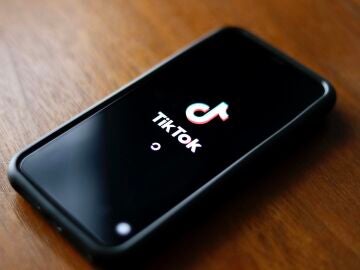
The European Commission (EC) and the Council of the European Union announced this Thursday that they will dispense with the Chinese application TikTok on your official mobile devices at a time when they want to protect better security against the increase in cyber attacks.
The European Commission today prohibited its workers from using TikTok on official phones and asked them that if they have the application installed, they remove it before March 15. The measure, however, will be “constantly” reviewed, so in the future it could be “reversible”said Commission spokeswoman Sonya Gospodinova.
The Commissioner for Budget and Administration, Johannes Hahn, whose department has adopted the decision, pointed out for his part to a group of media that this step it is not because there is “an immediate threat”, but it has been given to “further reinforce” the institution’s cybersecurity measures. “I can reassure you that there is no immediate threat, but we constantly monitor the situation. It is not a secret that we are under an increase in the threat of cybersecurity and, therefore, we have to take measures to avoid anything in the future.”Hahn said.
In the same line, the Council of the EU will uninstall the app from its corporate mobile devices and will ask its workers to remove it from their personal data that they use to access the institution’s services, a measure similar to the one announced this Thursday by the Community Executive. “The (Council) Secretariat is applying measures similar to those adopted by the Commission. Will uninstall the app on corporate devices and will ask the staff to uninstall it from personal mobile devices that have access to corporate services,” community sources reported. According to the Secretariat of this institution, in which the Governments of the Twenty-seven are represented, “continually reviews your cybersecurity measures in close cooperation with the other EU institutions”.
TikTok requests a meeting with the European Commission
For its part, TikTok has asked a meeting with the European Commission to “set the record straight” about its own security measures and, according to the company said in a statement, it is “surprised” that the institution has not previously contacted them or “offered any explanation”. The company assured that wants to explain to the EC how it protects the data of the 125 million people who watch TikTok every month in the EU and noted that it is establishing three centers in Europe to store user data locally, “further reducing employee access to it and minimizing data flows outside of Europe.”
Is It is not the only application that the Community Executive has prohibitedsince previously also vetoed the Zoom video calling application, but does allow similar ones such as Skype for Business or Webex. Meanwhile, the European Parliament is “assessing all possible data breaches related to the mobile application” of TikTok before taking any action, a spokesman for the European Parliament told EFE.
Brussels takes time putting its spotlight on TikTok and the rest of the big tech companies and, in this context, in January he met with the CEO of the Chinese company, Shou Zi Chew, who threatened to ban its use in the European Union if it does not prevent minors from having access to “life-threatening videos” and if it does not prevent user data from being transferred to third countries.
The European Commission is thus following in the footsteps of the United States, where Congress has prohibited legislators and their employees from installing the application on their official phones. A measure that they have also adopted several States of that country, among them Texas, Alabama or Tennessee, as well as institutions such as the University of Florida. The controversy in the United States over the use of the Chinese application has worsened after the recent revelation that ByteDance, the company that owns TikTok, used the social network to spy on journalists.
Source: Lasexta
Ricardo is a renowned author and journalist, known for his exceptional writing on top-news stories. He currently works as a writer at the 247 News Agency, where he is known for his ability to deliver breaking news and insightful analysis on the most pressing issues of the day.











